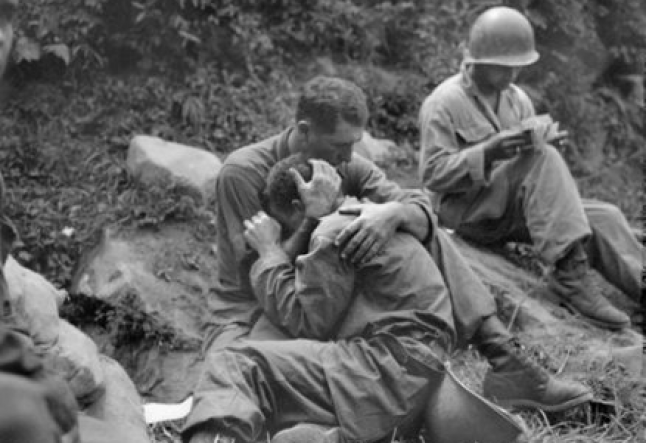empowered vulnerability

it’s ok to cry, isn’t it?
As a Los Angeles based psychotherapist and yoga teacher, I travel in many spiritual circles which espouse and sometimes proselytize the importance of positive thinking and its power to create our reality and manifest the future. Works like The Secret boldly profess that you are in complete control of your life, and by choosing your thoughts wisely, and visualizing your hearts desire, you are in command of fate, fortune, and all that is coming your way. At first glance, this New Age philosophy may seem benign if not constructive in empowering individuals to set goals and take responsibility for their happiness. Certainly I am a proponent of encouraging individuals to feel like active participants in their life. I myself also practice and believe in the power of clarifying one’s intention and visualizing one’s aspirations. However, there is a great shadow to the blanket statement that everything that happens to us is a product of our own doing, or namely, our own thinking. While part of my job as a healer is to kindle a client’s sense of agency and potential, it is also to model how to adapt when life doesn’t work out as planned, how to respond with equanimity when life brings trauma, tragedy, and injustice. Life does and will bring tragedy and trauma. People get sick, relationships end, economies crash, and things happen to us which can feel unfair. It can be a very shaming statement to claim unequivocally that everything that happens to us is a result of our thinking. It is another way of blaming the victim, and not only places guilt on the suffering, but prevents others from accessing genuine compassion for the plights of others. Carl Jung coined the phrase “both/and” as the antidote to “either/or” thinking, also known as black and white thinking. I believe one of the reasons for the popularity of works like The Secret, and countless other “Self Help” and “New Age” literature which evangelize the complete omnipotence of the human being is a reflection of the American culture’s addiction to black and white thinking, to the either/or. We are a culture that wants defined enemies, clear cut answers, and total invincibility. What if we were able to soften our rigid thinking and accept that as human beings we are both capable of crafting a life we enjoy, and subject to the slings and arrows of outrageous fortune. Is there a middle path we can take that avoids inflating ourselves with the grandiose magical thinking that claims we control reality, while still steering clear of victimhood. Perhaps we can see ourselves as humble co-creators with the universe, collaborators with life? The truth is, to be human is to be vulnerable. An integrated sense of personal power is not denying our vulnerability, but acknowledging it, even embracing it, for it is that vulnerability which makes life precious and connects us to humanity at large. The Alcoholics Anonymous adage: “God grant me the serenity to accept the things I cannot change; courage to change the things I can; and wisdom to know the difference” is relevant not only for those in recovery, but for all of us in navigating our way through the labyrinth of our lives. Alan Watt put it best: “If you think that you are in control of everything that happens to you, then you are delusional. And if you think you are just a victim of your life, you are also delusional. Life is a dance between the two.”